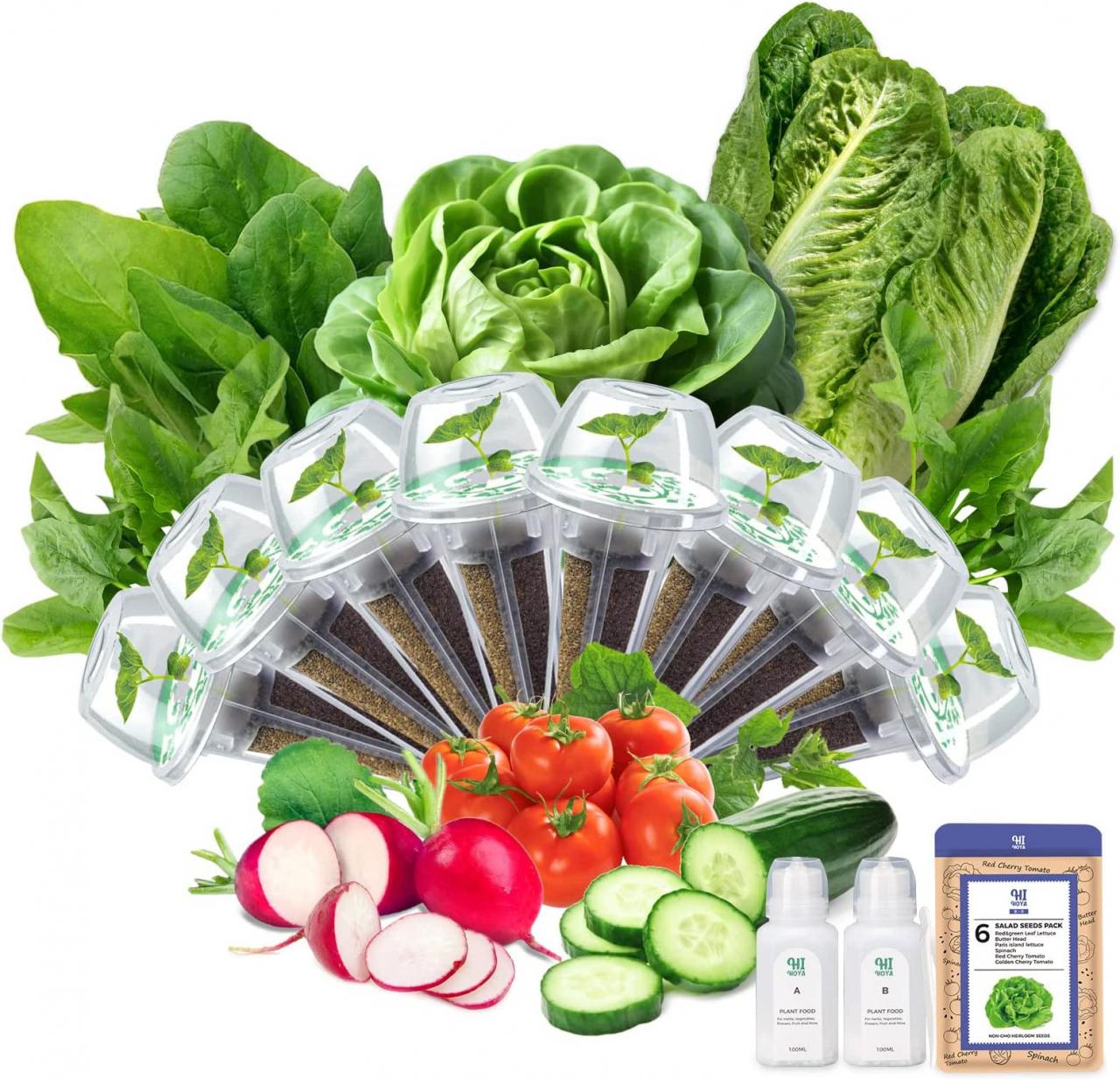What Are Hydroponic Seed Pod Kits?
Hydroponic seed pod kits are all-in-one growing solutions designed for indoor gardening systems. These kits typically include pre-seeded pods, grow sponges, baskets, domes, and plant nutrients, allowing users to easily start and maintain a variety of plants without soil.
Pros of Hydroponic Seed Pod Kits
1. Convenience: These kits provide everything needed to start growing, making them ideal for beginners and busy gardeners.
2. Variety: Many kits offer a diverse selection of seeds, including fruits, vegetables, and herbs, allowing gardeners to experiment with different crops.
3. Year-round growing: Indoor hydroponic systems enable gardening regardless of outdoor conditions or seasons.
4. Space-efficient: Perfect for small apartments or homes with limited outdoor space.
5. Educational value: These kits can be great tools for teaching children about plant growth and nutrition.
Cons of Hydroponic Seed Pod Kits
1. Initial cost: The upfront investment for a hydroponic system and seed pod kits can be higher than traditional gardening methods.
2. Limited crop size: While convenient, the size of plants that can be grown is often restricted by the system’s capacity.
3. Dependency on technology: Power outages or equipment malfunctions can potentially harm your plants.
4. Ongoing expenses: Regular purchases of new seed pods and nutrients are necessary to maintain the garden.

5. Less connection to nature: Some gardeners may miss the tactile experience of working with soil and outdoor elements.
Factors to Consider Before Investing
1. Space availability: Ensure you have adequate room for the hydroponic system and growing plants.
2. Time commitment: While easier than traditional gardening, these systems still require regular maintenance and monitoring.
3. Crop preferences: Consider which plants you want to grow and whether they are well-suited for hydroponic systems.
4. Long-term goals: Determine if the convenience and year-round growing capabilities align with your gardening objectives.
5. Budget: Evaluate the initial and ongoing costs against the benefits of fresh, homegrown produce.